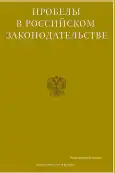Modern Terrorism and Extremism: Development Trends, Problems of Counteraction
- Authors: Zhamborov A.A.1
-
Affiliations:
- North Caucasus Institute for Advanced Studies (branch) of the Krasnodar University of the Ministry of Internal Affairs of Russia
- Issue: Vol 15, No 3 (2022)
- Pages: 80-86
- Section: Articles
- URL: https://journals.rcsi.science/2072-3164/article/view/147480
- ID: 147480
Cite item
Abstract
The purpose of this work is to study development trends, counteraction problems, as well as the features of modern extremism and terrorism, which pose a significant threat to the principles of civil society in almost any rule of law state. To date, extremism and terrorism as a socio-political phenomenon occupy one of the central places in modern scientific discourse. The discussion of problems related to these negative phenomena is actively taking place on the pages of scientific and journalistic journals, which in turn allows us to talk about the possibility and relevance of their consideration. The paper notes that one of the general trends of these highly resonant crimes is a steady increase in the degree of their public danger both for the foundations of the social and state system of Russia, and for international relations and international security. This, in turn, presupposes the legal regulation of the fight against these radical social phenomena on the part of the State as one of the priorities. Almost any legal state can potentially be targeted by extremism and terrorism, regardless of the level of socio-economic development, state-political structure and military power and capabilities of a particular country, as evidenced by the scale and geography of crimes of this nature at the present stage of their development. Modern extremism is ideologically represented by radicalist and, as a rule, religiously determined views, supporters of this ideology rely on violence and terrorism in resolving social contradictions and implementing social transformations. The objectives of the study are the need to develop a comprehensive set of countermeasures aimed at prevention, as well as combating the activities of extremist and terrorist organizations, which, in our opinion, should in turn be based on: firstly, a nationwide unified set of preventive measures assuming a systematic and permanent nature, covering all the necessary levels of regulatory regulation; secondlysecondly, to increase the effectiveness of the practice of applying anti-terrorist and anti-extremist legislation; thirdly, to use the international experience of other countries that have also faced extremism and terrorism in any form of its manifestations. Russia, through the relevant bodies and services, as well as interaction with international organizations whose main activity is the prevention and combating of terrorist and extremist crimes, cooperates with many foreign states, which greatly increases the effectiveness of countermeasures in the fight against international extremist terrorist organizations. Conclusions: improving the effectiveness of countering criminal extremism and terrorism can be possible only if it is engaged not only by persons authorized by Law, law enforcement officers, but the whole society as a whole, including representatives of the scientific world, scientists of various specialties. In the development of modern extremism and terrorism, certain trends and counteraction problems are traced, the study of which can help in understanding these crimes as a phenomenon, as well as developing a certain system of scientifically based practical measures necessary to increase the effectiveness of combating them.
Full Text
##article.viewOnOriginalSite##About the authors
Anzor Anatolievich Zhamborov
North Caucasus Institute for Advanced Studies (branch) of the Krasnodar University of the Ministry of Internal Affairs of Russia
Email: jamborоw@mail.ru
Cand.Sci.(Law), Police Colonel, Associate Professor of the Fire Training Department Nalchik, Russia
References
- Skrebets E.S. Some features of the classification of extremism at the present stage of development of society // Scientific notes of the Crimean Federal University named after V. I. Vernadsky Law Sciences. - 2015. - Vol. 1 (67). No. 4. - pp. 116-121.
- Official website of the National Research Tomsk Polytechnic University.[electronic resource]. - Access mode:http://www.lib.tpu.ru/fulltext/m/2012/m08.pdf#38 (date of appeal - 02/14/2022).
- В.А. Диль. современный экстремизм: тенденции развития и социокультурные модификации // 344-й том Вестника Томского государственного университета, 2011 год. №6.
- Akkaeva H.A. Socio-criminological characteristics of xenophobia and extremism as interrelated phenomena // Theory and Practice of Social Development, No. 3, 2014
- Official website VEDOMOSTI.RU . [Electronic resource]. - Access mode: https://ria.ru/20211020/ekstremizm-1755317270.html (accessed on 02/21/2022).
- Official website kommersant.ru [Electronic resource]. - Access mode: https://www.kommersant.ru/doc/5129778 (date of appeal - 02/18/2022).
- Semenovsky N.N. Terrorism as a threat to the national security of Russia // Bulletin of State and Municipal Administration. - 2015.-No. 4. pp.42-49.
- Zhamborov A.A. Modern terrorism and extremism as a potential threat to state security//Problems of economics and legal practice. 2021. Vol. 14. No. 3. pp. 32-36.
- Karataev M.V. Features of internal control in order to counter the financing of terrorism // Internal control in a credit institution, - 2010 No. 4
- Moiseeva S.A., Kokaev A.S., Gazaeva Z.V. Formation of interethnic and interfaith tolerance as prevention of extremism. Modern technologies in education. 2013. No. XIII. pp. 118-121.
- Жамборов А.А. Современное российское законодательство как инструмент противодействия преступлениям экстремистской направленности // - журнал «Евразийский юридический журнал» - М., 2017. №7(110).
- Ishchenko E.P. On the need to develop a state program to combat crime. Business in law. Economic and Legal Journal. 2007. No. 3. pp. 32-34.
- Грачев С.И., Мольков С.Н. Современный экстремизм: источники и процессуальные детерминанты: учебное пособие, - Ставрополь: Ставролит, 2018. - 26 с.
Supplementary files








